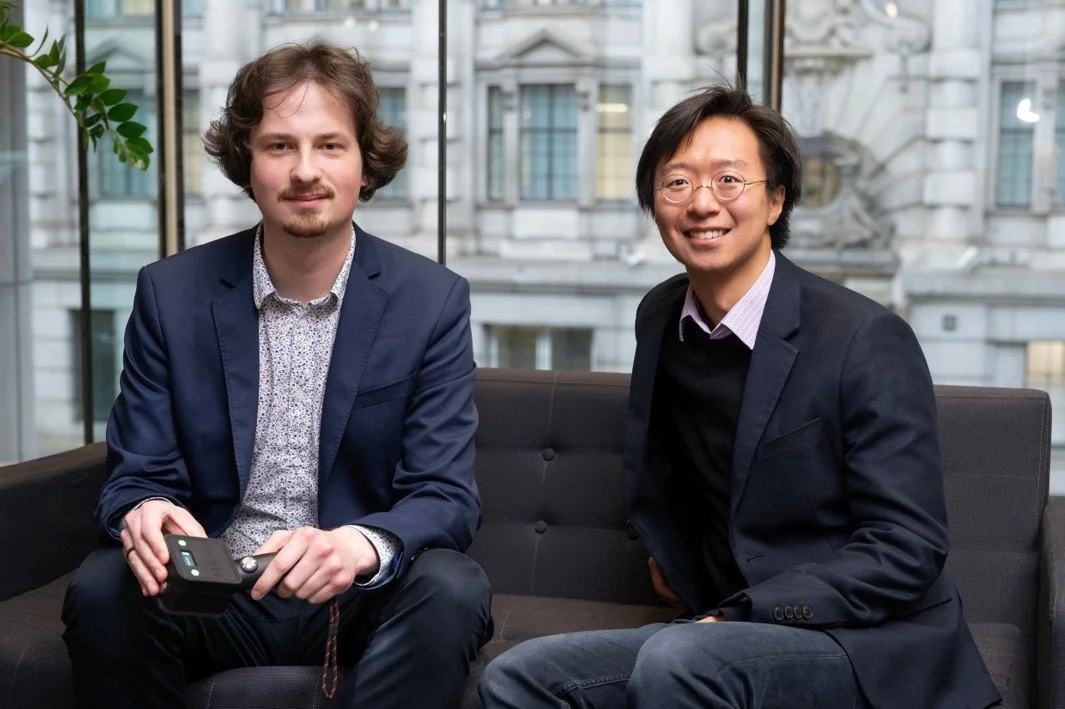Why we invested…
April, 2025 - UK-based startup Matoha secures £1.5m from Archipelago, British Design Fund, Circular Plastics Accelerator and Conduit EIS Impact Fund, to drive circular economy innovation
By Gabrielle Morgan, Senior Investment Manager & Natalie Otwoma, Associate
Introducing Matoha
Every year, 100 billion clothing items are produced and 60% discarded within a year—adding up to 92 million tonnes of textile waste annually. 70% of discarded clothes go to landfills or incineration, while only 30% are collected for reuse. Moving from a linear to a circular model of textile production is essential to tackle the mounting textile waste crisis. Significant progress is being made in fibre-to-fibre recycling (F2F), where post-consumer textile waste is turned into valuable new fibres for use in new clothes and products. However, less than 1% of textiles are currently recycled into new fibres, largely due to inadequate sorting infrastructure. Before textiles can be recycled – they must be sorted by composite materials, as recycling processes require very specific textile compositions. Textile sorting is particularly difficult (compared to plastic bottles, for example) as most clothes are fibre blends (e.g. 30% cotton, 70% polyester), and items that look identical can have entirely different compositions.
Our Take
Matoha is unlocking a textile circular economy with cutting-edge devices and AI-powered software that can identify material composition with near-instant speed and accuracy. Powered by advanced Near Infrared (NIR) spectroscopy, these devices scan items and use proprietary AI algorithms to instantly detect a vast range of materials and blends—including nylon, elastane, cotton, and polyester—across textiles like clothing and carpets. What sets Matoha apart? Their technology is not only faster—delivering results in just 0.5 seconds—it is more affordable than competitors, and it can accurately identify blends of a material. This specificity and material transparency can increase the quality of textile feedstock for mechanical or chemical recycling.
Matoha currently sells its handheld devices and software solution to textile recyclers across the globe. It is developing a version of its technology into a ‘smart bench’ solution, which is particularly well suited for high volume recycling facilities. Matoha has sold its solution to over 250 customers across 45 countries including some of the largest textile sorters and recyclers. Matoha has developed a data platform that is sold with its devices, which can provide customers with rich and specific data on the textiles they are sorting and how the textiles are moving through the supply chain. This data can be used to help brands and recyclers comply with regulation like Extended Producer Responsibility and in the future, could underpin a marketplace of sorted textiles for recycling and reuse. This tranche of funding will go towards supporting the automation and scaling of Matoha’s technology via AI-driven robotic solutions.
Martin Holicky and Hans Chan, Co-founders of Matoha
Impact
With Matoha devices, textiles can be sorted by composition, increasing the quality and quantity of textiles made available for F2F recycling. Once it has developed its robot, Matoha estimates that 1 sorting robot can sort up to 1000 tonnes of low value textiles per year. At this rate, and assuming 70% of low value textiles could be recycled if sorted correctly (based on McKinsey research), a single Matoha robot can sort and produce 700 tonnes of recyclable feedstock per year. At scale, Matoha has the impact reduction potential of saving 1.2 megatonnes of Co2 emissions per year, equivalent to over 1 million passenger flights from London to New York or 2.25m barrels of oil being burnt.
Hans Chan, CTO and Founder at Matoha, said, “This investment will enable Matoha to take our technology to the next level. With this investment we can have a greater impact on processing end-of-life textiles. This will include improving the AI capabilities in sorting for recycling and reuse. We are also looking at automation which is essential due to the sheer volume of textiles waste. Current automated solutions are hugely expensive and too big in scale for the majority of businesses. Our strategy is to offer our customers more nimble, high-performance, and economically reasonable automation systems. Our dream is that every end-of-life garment will pass through a Matoha system.”
Find out more about Matoha here



